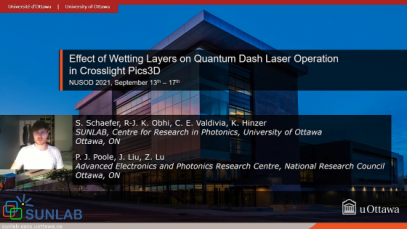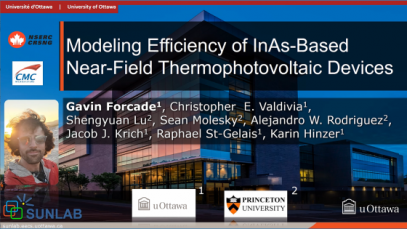LD06–Effect of Wetting Layers on Quantum Dash Laser Operation in Crosslight PICS3D
We discuss the integration of quantum dashes (QDashes) into laser simulations using Crosslight Pics3D, outlining the approach for developing a model featuring asymmetrical active regions. The importance of including wetting layers to accurately represent carrier transport is investigated using results obtained for an InAs/InP QDash laser. While leakage current across the active region is unaffected […]



